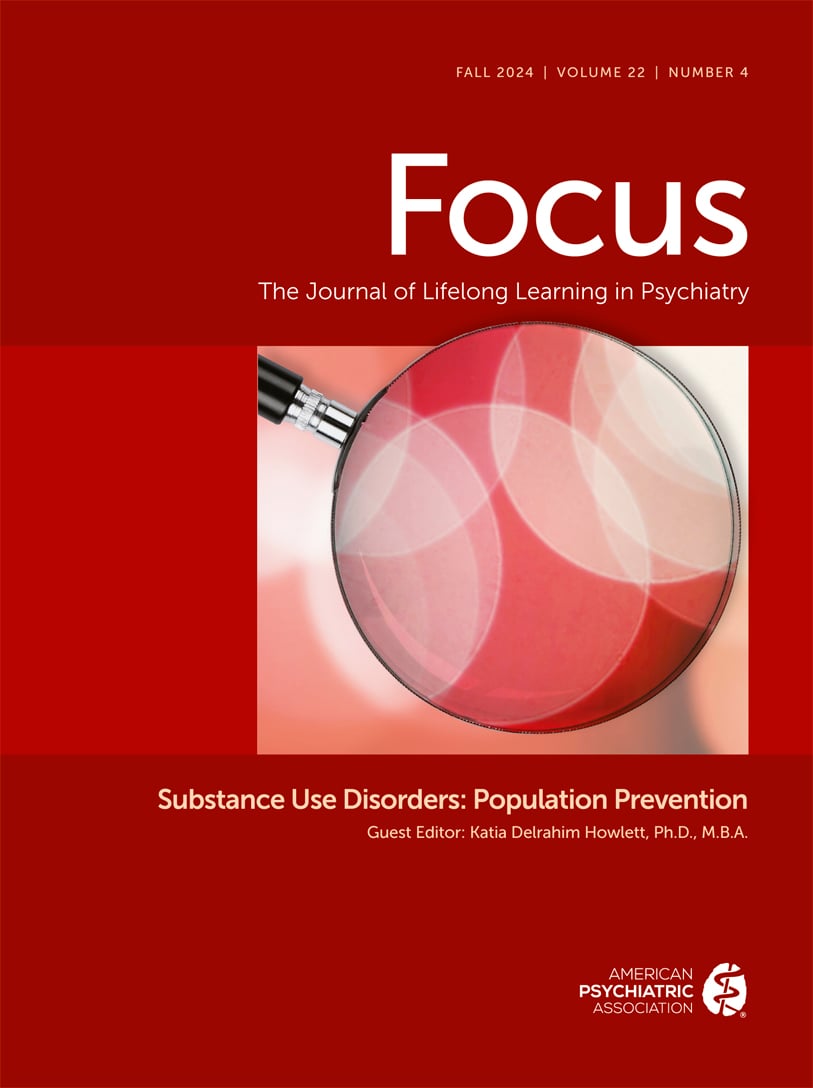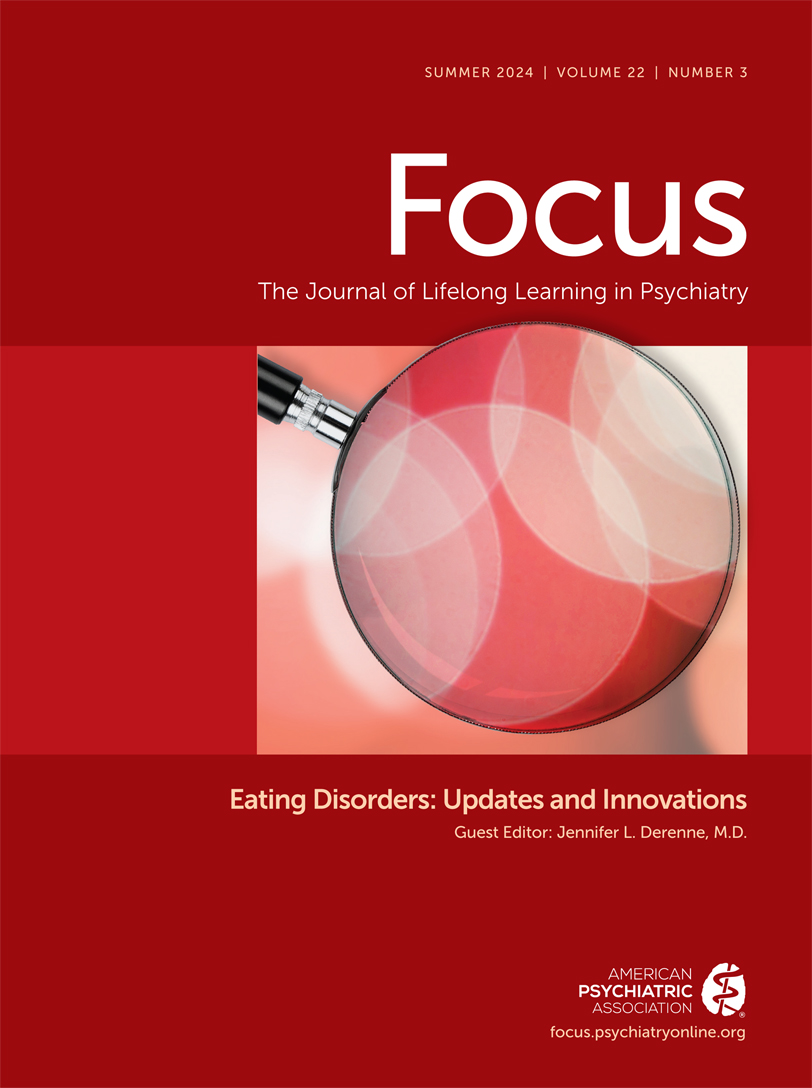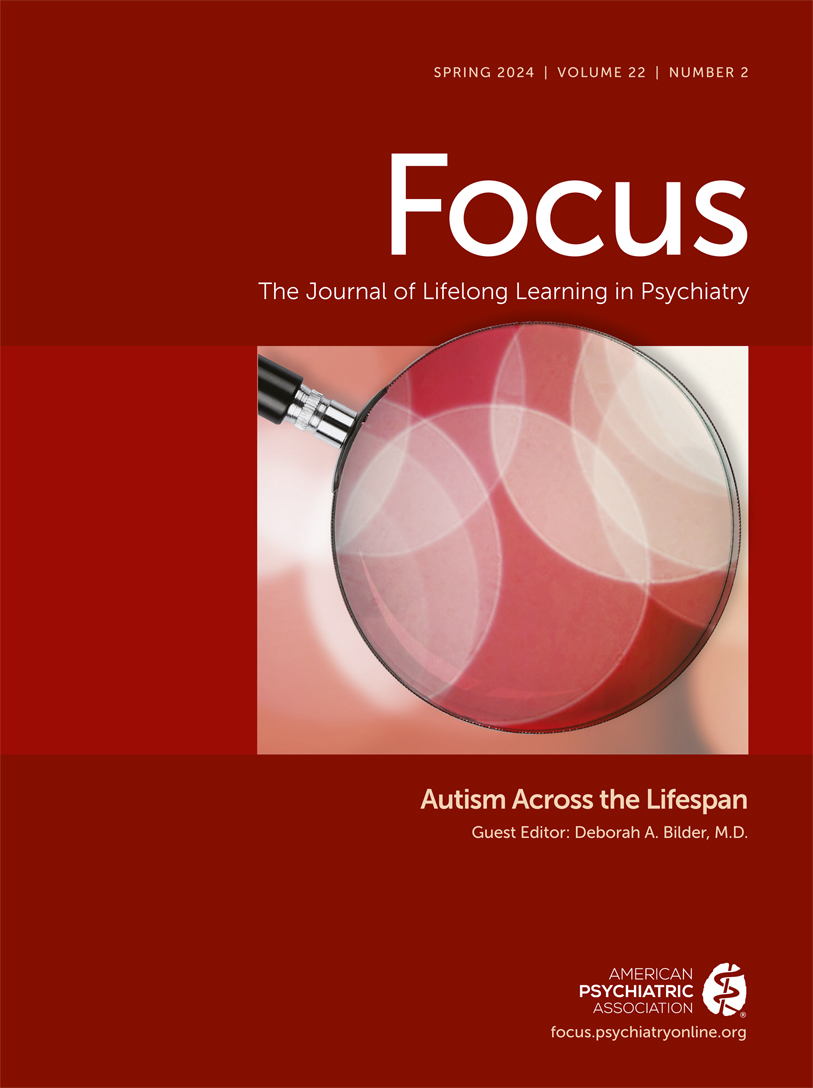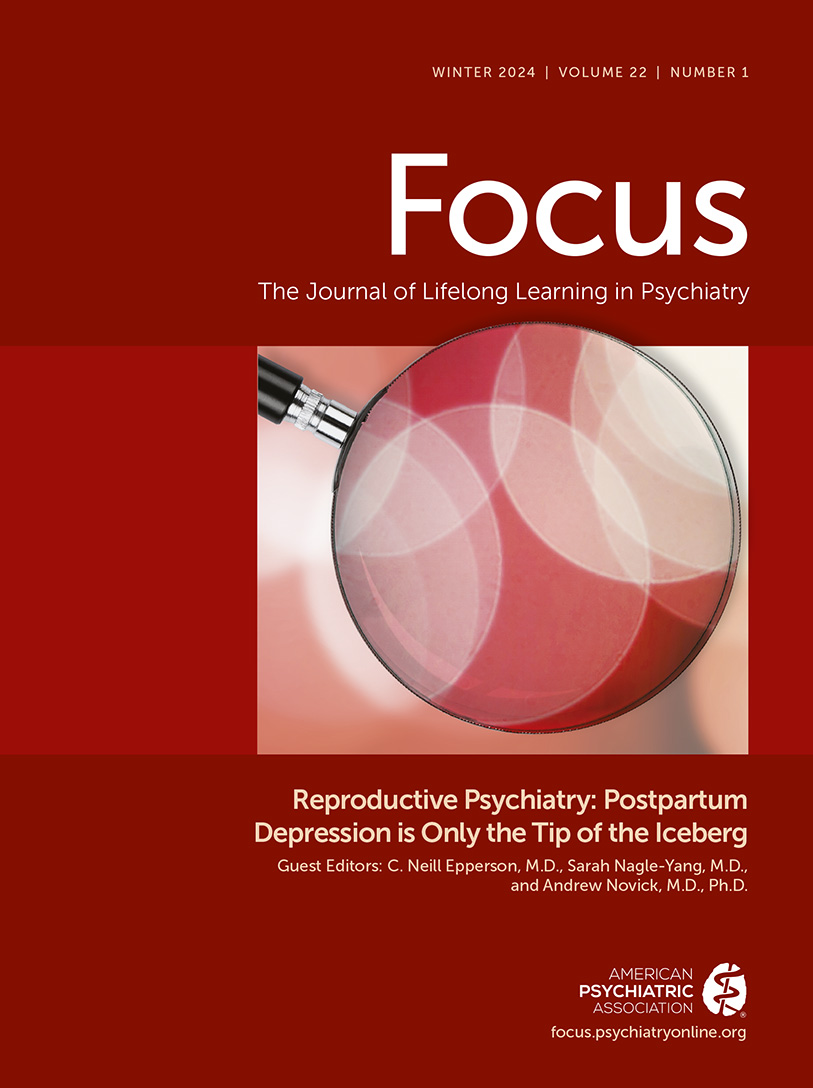Focus
- Volume 11
- Number 3
- July 2013
From the Guest Editors
Clinical Synthesis
Publication date: 01 July 2013
Pages307–314While treating PTSD with pharmacotherapy has accumulated some empirical support, the Institute of Medicine rates trauma-focused cognitive behavioral therapy as the only first-level treatment for PTSD. This paper explores the evidence for trauma-focused ...
https://doi.org/10.1176/appi.focus.11.3.307Publication date: 01 July 2013
Pages315–320This article reviews the scientific support for the various medications that have been prescribed for patients with PTSD, with major attention to randomized clinical trials. The strongest evidence is for antidepressant medications, especially selective ...
https://doi.org/10.1176/appi.focus.11.3.315Publication date: 01 July 2013
Pages321–327Posttraumatic stress disorder (PTSD) is often a chronic condition that has a significant impact on the individual and society. In attempts to prevent the disorder for those at risk, researchers have explored predictors of PTSD with limited success. As an ...
https://doi.org/10.1176/appi.focus.11.3.321Publication date: 01 July 2013
Pages328–340TBI is recognized as the “signature wound” for military personnel in recent wars. The authors review the current literature on TBI diagnosis and treatment strategies and note areas where clinical controversies exist.
https://doi.org/10.1176/appi.focus.11.3.328Performance in Practice: Clinical Module for the Care of Patients With Posttraumatic Stress Disorder
Publication date: 01 July 2013
Pages341–349The American Psychiatric Association's (APA) Performance in Practice (PIP) clinical modules are designed to meet the requirements of the American Board of Psychiatry and Neurology (ABPN) Part 4 of Maintenance of Certification (MOC).
https://doi.org/10.1176/appi.focus.11.3.341Publication date: 01 July 2013
Pages352–357This exercise is designed to test your comprehension of material presented in this issue of FOCUS as well as your ability to evaluate, diagnose, and manage clinical problems. Answer the questions below, to the best of your ability, on the information ...
https://doi.org/10.1176/appi.focus.11.3.352Influential Publications
Publication date: 01 July 2013
Pages379–386Background Many patients do not adhere to or benefit from cognitive behaviour therapy (CBT) for post-traumatic stress disorder (PTSD). This randomized controlled trial evaluates the extent to which preparing patients with emotion regulation skills prior to ...
https://doi.org/10.1176/appi.focus.11.3.379Publication date: 01 July 2013
Pages396–413Military deployments to Afghanistan and Iraq have been associated with elevated prevalence of both posttraumatic stress disorder (PTSD) and traumatic brain injury (TBI) among combat veterans. The diagnosis and management of PTSD when a comorbid TBI may ...
https://doi.org/10.1176/appi.focus.11.3.396Publication date: 01 July 2013
Pages414–427In recent years, several practice guidelines have appeared to inform clinical work in the assessment and treatment of posttraumatic stress disorder. Although there is a high level of consensus across these documents, there are also areas of apparent ...
https://doi.org/10.1176/appi.focus.11.3.414Publication date: 01 July 2013
Pages428–436Two decades of research demonstrate the efficacy of exposure therapy for posttraumatic stress disorder (PTSD). The efficacy of prolonged exposure (PE), a specific exposure therapy program for PTSD that has been disseminated throughout the world, has been ...
https://doi.org/10.1176/appi.focus.11.3.428Past Issues
View Issues Archive
Vol. 22 | No. 4

Vol. 22 | No. 3

Vol. 22 | No. 2
